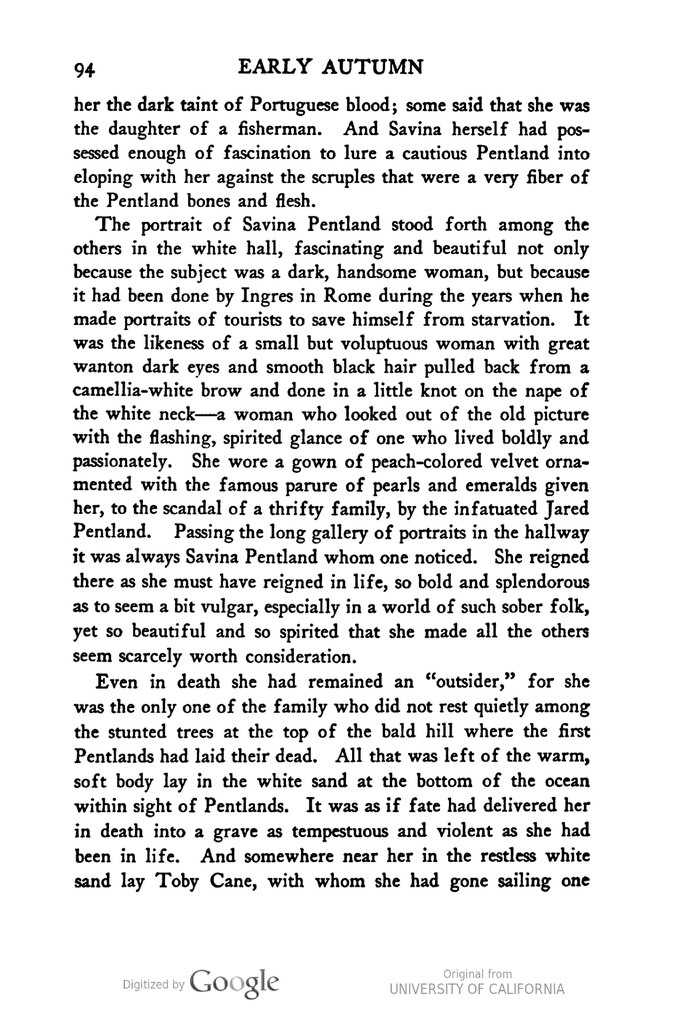her the dark taint of Portuguese blood; some said that she was the daughter of a fisherman. And Savina herself had possessed enough of fascination to lure a cautious Pentland into eloping with her against the scruples that were a very fiber of the Pentland bones and flesh.
The portrait of Savina Pentland stood forth among the others in the white hall, fascinating and beautiful not only because the subject was a dark, handsome woman, but because it had been done by Ingres in Rome during the years when he made portraits of tourists to save himself from starvation. It was the likeness of a small but voluptuous woman with great wanton dark eyes and smooth black hair pulled back from a camellia-white brow and done in a little knot on the nape of the white neck—a woman who looked out of the old picture with the flashing, spirited glance of one who lived boldly and passionately. She wore a gown of peach-colored velvet ornamented with the famous parure of pearls and emeralds given her, to the scandal of a thrifty family, by the infatuated Jared Pentland. Passing the long gallery of portraits in the hallway it was always Savina Pentland whom one noticed. She reigned there as she must have reigned in life, so bold and splendorous as to seem a bit vulgar, especially in a world of such sober folk, yet so beautiful and so spirited that she made all the others seem scarcely worth consideration.
Even in death she had remained an "outsider," for she was the only one of the family who did not rest quietly among the stunted trees at the top of the bald hill where the first Pentlands had laid their dead. All that was left of the warm, soft body lay in the white sand at the bottom of the ocean within sight of Pentlands. It was as if fate had delivered her in death into a grave as tempestuous and violent as she had been in life. And somewhere near her in the restless white sand lay Toby Cane, with whom she had gone sailing one
